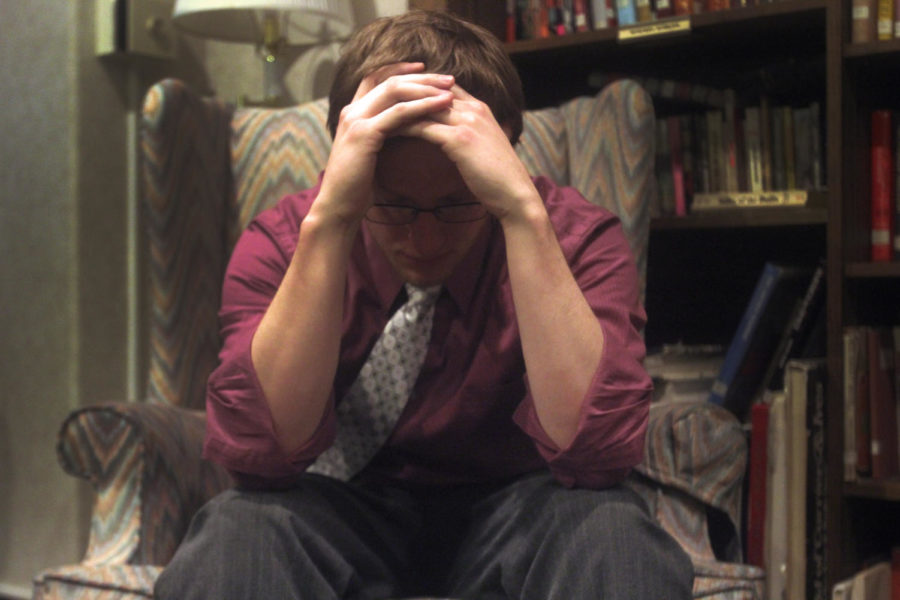Ward: Depression discussion needs to shift to normality
Illustration: Blake Lanser/Iowa State Daily
Depression during the holiday season can hit students hard. With financial troubles and lack of funds to make Christmas enjoyable, some will slip into a depressed rut.
October 12, 2015
Female, 5 feet 10 inches tall, blue eyes, blonde hair, full figured, sarcastic, responsible, caring and depressed. Which of these does not belong? And more importantly, why did you pick the one you did?
On the outside, I don’t look like I have depression. I just look like your average college student. That’s because I am, but people just don’t see it that way. There isn’t a way to externalize depression unless it has reached the self-harm stage, which only impacts about 30 percent of college students.
Depression is something you deal with on the inside and anyone who battles this mental illness, which affects 1 in 4 people between the ages of 18 and 24, understands this. It’s about time the rest of the world did too.
Depression is real, depression is common and depression is something society needs to accept.
I am not an abnormality, yet when I bring up the fact that I have diagnosed depression, these ordinary features of mine are dissected like a frog in a biology class. “Is she overweight because she has an eating disorder that stems from her depression?” “Is she using sarcasm as a defense mechanism?”
While I’m trying to avoid delving into the inner workings of my psychiatric self, I’m also trying to get people to understand that depression is much more normal, especially among the college-age group, than we’d like to admit. I think the conversation needs to change.
About five years ago, a huge celebrity inspiration of mine checked herself into rehab to discover she had bipolar disorder and, in my opinion, that was when I realized how dysfunctional the world was when it comes to mental illness.
Demi Lovato, a beloved former Disney Channel star, seemed to be headed straight for the height of celebrity, but shocked the world when she voluntarily checked herself into rehab to deal with her lifelong struggle with eating disorders and depression. All of the sudden, she fell from grace in the eyes of the public because she was being honest and human.
She went from being viewed as a role model for young kids to a tragic story of fame gone wrong. Attention was shifted from her talent, respectable behavior and success to how sad it was that she was in rehab. How is accepting who you are and what you have to face in life a sad thing? This is something I still don’t understand.
As someone who had already been attending therapy for about a year when Lovato went public with her mental illness, I somewhat identified with how people suddenly saw her as a ticking time bomb because my peers did the same to me and, to be frank, it didn’t make sense.
Before making my depression public information, I still lived with it, just on a more private level. I was still the same me, even a healthier version, after I was honest with those around me because I was finally dealing with my depression on the outside.
This being said, why are we still looking at being honest about living with mental health issues as a negative thing? Although positive steps are being taken, it will take a collective conversation to turn this stigma on its head.
Lovato is actually doing a lot to move this change along by partnering with five different mental health organizations in a movement called Be Vocal: Speak Up for Mental Health, where she talks about advocating and living well through the diagnosis of mental illness.
This is a huge revelation because it’s showing that despite living with bipolar disorder, Lovato can still function at a high level and make a positive contribution to society.
This idea does not just apply to her. I live with depression but I still do what I love and work hard at it. This extends beyond myself and beyond Lovato into every single person who lives with depression in any form. This is the reality, not the sad broken image that exists in the mind’s eye of society, and reality is what needs to be addressed from here on out.







